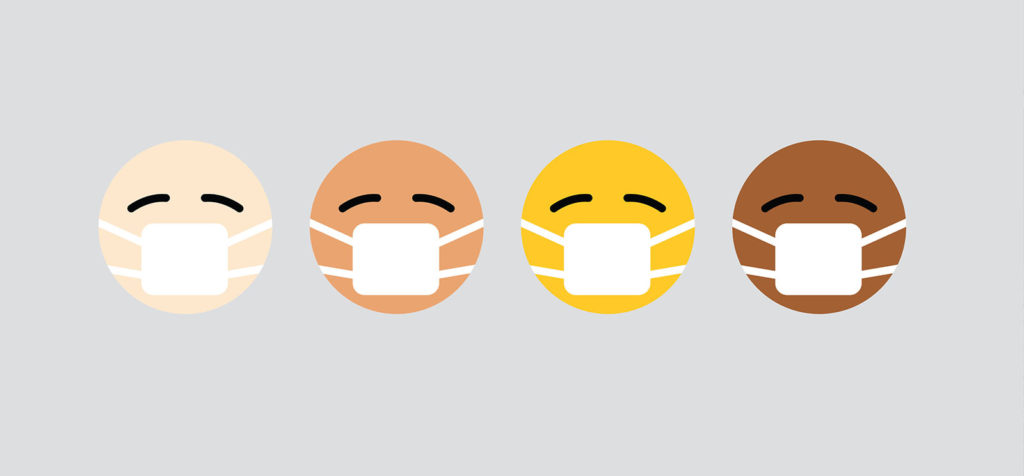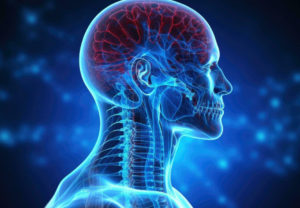We’ve heard from more and more COVID-19 survivors that the virus’ impact lasts beyond the first few weeks of immediate symptoms. For some patients, COVID-19 has a long-term, far-reaching impact on their daily lives, impacting them physically, emotionally, and cognitively. This is especially true for many people with previously diagnosed conditions, such as prior strokes, TBIs, or diagnoses of dementia. Read on to hear current research findings related to COVID-19’s lasting effects on cognitive function, and what we here at Constant Therapy Health are doing about it.
Long COVID: The latest challenge in the fight against the novel coronavirus
As we continue to learn more about COVID-19, a new term, “Long COVID”, emerged. So what IS Long COVID? What does the existing research tell us? When we analyze an illness like COVID-19 we look at mortality, or how deadly it is, as well as morbidity, or the overarching impact of the disease other than death. Research thus far mostly prioritized the mortality of COVID-19 (understandably so given the urgency to better understand this deadly virus). However, more and more research is emerging assessing the morbidity of COVID-19 and its long-term symptoms. Long COVID can cause a variety of symptoms. They range from more physical symptoms such as pulmonary, cardiovascular, and systematic issues like fatigue, to neuropsychological symptoms impacting cognition, speech and language, memory, emotion and mood, and the now hallmark symptoms of loss of smell and taste. As the scientific community continues to uncover the lasting symptoms associated with Long COVID, we also need to make a plan to figure out how to best help those currently struggling with these long-term effects.
How COVID-19 impacts speech, language, and cognition
There are four ways that COVID-19 is currently impacting speech, language, and cognitive skills:
Neuropsychological impact of COVID-19
As noted above, Long COVID is receiving more and more attention as scientists prioritize investigating the long term effects of the disease.
In a not-yet peer reviewed paper analyzing survey data from over 3,700 people who had symptoms consistent with COVID-19, researchers found trends not only in the types of symptoms that people had, but also in the timing at which they experienced them:
- Delayed onset: These symptoms ranged from physical symptoms such as fatigue, dry cough, or nausea, to more neuropsychological symptoms such as short-term memory loss, problem solving, and speech and language issues. Interestingly, researchers found that speech, language, and cognitive issues tended to emerge 4-8 weeks after initial COVID-19 symptoms, and persisted beyond 24 weeks.
- Life-altering: The same study found that due to Long COVID many people were unable to return to work, emphasizing the profound impact of these issues, and the importance of figuring out how to help these patients.
- Impacts cognition, speech, and language: This study found that the most common issues were short-term memory loss, long-term memory loss, and cognitive dysfunction including difficulty with attention, thinking, executive functioning, problem solving, and slowed thoughts. In fact, 85.1% of all respondents reported experiencing brain fog and cognitive dysfunction. Speech and language issues occurred in 48.6% of respondents. The most common speech and language issue was word finding. (Image from: Davis, et. al 2020)
In another single-center study looking at persistent symptoms following COVID-19 hospitalization, scientists found that even after over 100 days, patients still reported fatigue (55%), shortness of breath (42%), loss of memory (34%), concentration difficulties (28%), and sleep disorders (30.8%).
Mental health impact of COVID-19
Battling COVID-19 also brings mental health challenges, which can impact functional presentation and lower treatment engagement.
- Take a holistic approach to therapy options: This study emphasizes that patients recovering from neurological sequelae of COVID should be carefully monitored. This vigilance is required because COVID’s independent impacts on brain function, which we don’t yet fully understand, may also compound with recovery from neurological conditions such as strokes. The authors recommend early conversations about needs following acute care, such as psychotherapy, cognitive reevaluations, and vocational counseling.
Isolation
Do to the highly contagious nature of the virus, social isolation is a pervasive requirement for managing the spread of COVID-19. Patients with pre-existing conditions such as dementia, aphasia, traumatic brain injuries, and other neurological disorders are particularly vulnerable to the impacts of isolation. Without frequent social interaction, patients do not get to apply and practice their speech, language, and cognitive skills as readily, which can lead to a decline in each of these areas of need. While these patients are careful to isolate to stay safe from the virus itself, studies show that the isolation of COVID-19 results in a deterioration of emotional state and communication skills of these patients.
- Social isolation is a risk factor: The importance of continued therapy access even when social distancing during COVID-19 is further reinforced in this article, which reminds us that community activities are critical for patients with aphasia, and in fact social isolation is a risk factor for stroke, dementia, or heart disease. The author encourages use of telepractice and telecommunication tools to provide social connections, and also to receive speech and language therapy services.
- Therapy is a protective factor: The authors of this study encourage therapy to continue via tele-therapy when possible, and that patients should focus on rehabilitation programs that allow them to keep training their communication skills to avoid further deterioration if they are no longer participating in therapy.
So, what do we do about it?
These long-term and comorbid effects of COVID-19 are all still very new issues, but due to their persistent, wise-reaching impact on people’s ability to participate in their daily lives and successfully return to work, continuing to educate ourselves is of the utmost importance. The social and economic impacts of Long COVID need to be addressed expediently.
“Although COVID-19 is novel, the cognitive and linguistic symptoms SLPs will observe in survivors are not novel.”
Amy Ramage rightfully called upon speech-language pathologists to look at how we can help these patients given the applicability of speech-language pathology approaches to evaluation and intervention for similar populations of critical care patients. Whether the cause is a direct result of COVID-19 attacking patients’ neurological centers, or other neurological consequences of COVID-19 like stroke or intermittent hypoxia, we need to be prepared to help these patients. As Ramage aptly puts it, “although COVID-19 is novel, the cognitive and linguistic symptoms SLPs will observe in survivors are not novel.” We need to use objective and subjective evaluations to assess cognitive, linguistic, and social communication systems. We should treat all deficits with an interprofessional approach, and per Ramage’s article, treatment should not stop when patients are discharged but should continue when patients are at-home as well.
The research community hasn’t yet been able to study whether rehabilitation helps combat COVID-19 language and cognitive symptoms. However, that’s exactly what we’d like to find out. Constant Therapy has the therapy activities to address the language and cognitive symptoms associated with Long COVID and the neurological sequelae of COVID-19 – now it’s a matter of figuring out whether our therapy activities can help these specific patients.
We look forward to doing our part in the research community to help determine how we can best assist patients with long-term cognitive and language impairments resulting from the COVID-19 pandemic.
Article: Constanttherapyhealth




